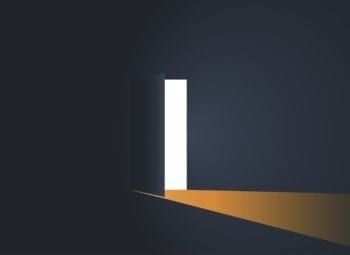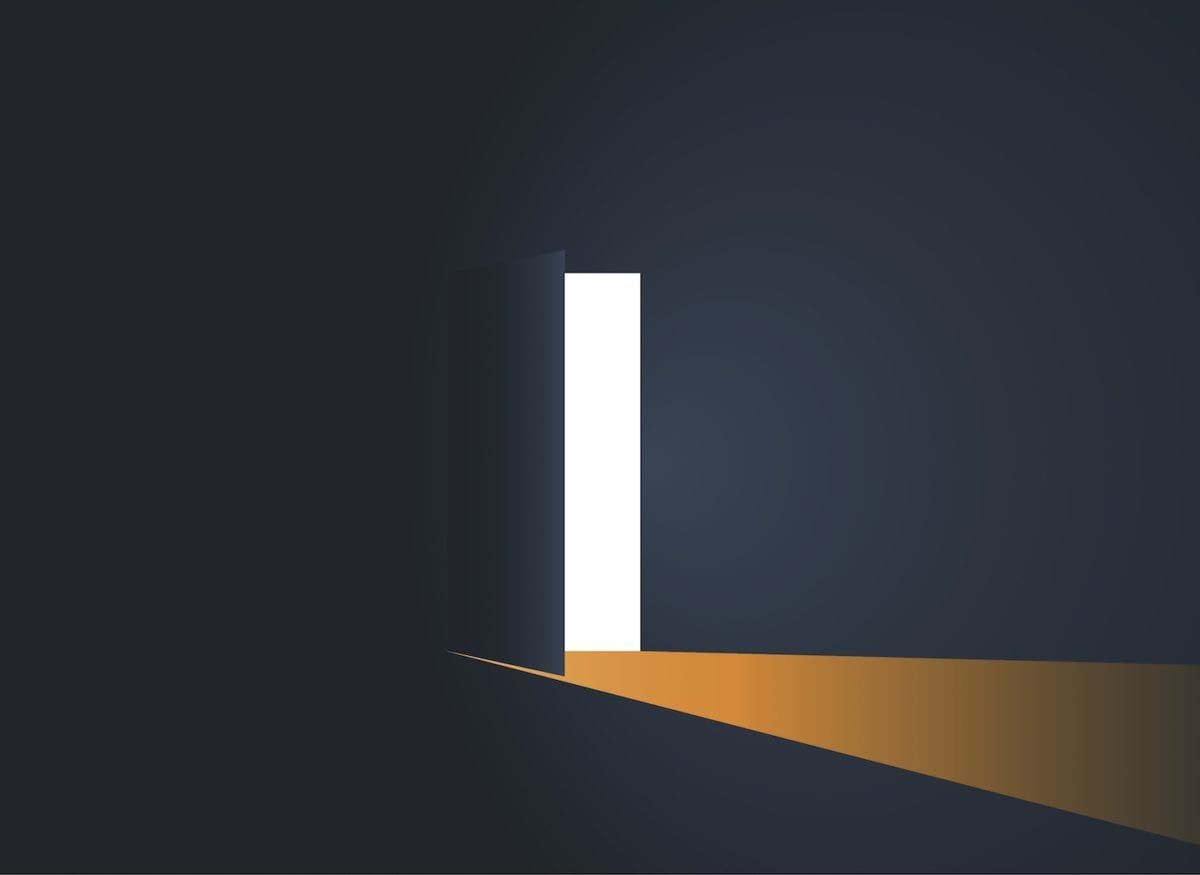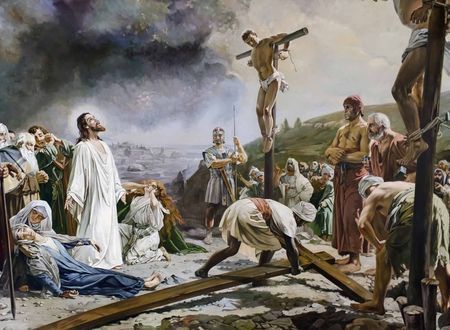A vast majority of the people I meet are going through one problem or another in life. At any point in time, of the ones in trouble, roughly 15% are ill (physically or mentally), 10% are undergoing a financial crunch, 10% have been marred with repeated failures, around 5% are facing some unique (at times, unusual) personal crisis and the remaining 60% are going through relationship problems. This is a broad categorization but it accurately sums up my thousands of one-on-one meetings in the last ten years. Those facing personal crises or having relationship issues are the most vulnerable of the lot.
And when we are vulnerable, we often make wrong choices. A woman finds the courage to walk out of an abusive or neglectful relationship only to fall for a man who is even worse. She will place her trust in one person, get hurt, breakup, withdraw, and promise herself never to trust another man.
And yet, loneliness and hope creep in and before she knows it she’s now hankering after someone else again. Men make the same mistakes too, although, somehow they tend to move on. “Maybe this time, it’ll work out,” is the hope they both feed on before plunging into the same ocean of expectations. But, it doesn’t matter how high your hopes might be, as long as you are vulnerable you are likely to fall into the same trap over and over again.
Vulnerability masks our true feelings, it clouds our judgement, it deludes us into seeing what we want to see as opposed to the real truth. That is why any wise person will tell you to never jump into a relationship or take any major decision in the face of grief, heartbreak or bereavement. Sorrow must run its own course and dry up before you decide to venture out again or invest your feelings in another person.
Having said that, being vulnerable is essential to your personal and spiritual growth. It makes us more sensitive towards ourselves and others. But, when it comes to deciding what you ought to do next, wait until you are healed.
Decisions taken in a vulnerable state of mind will haunt you later. Nearly always. And, this leads me to the theme of today’s post: how do you overcome vulnerability? Or more appropriately, how do you ensure that your experience and the hurt from your past is not shrouding the truth you must see?
Healing is your answer.
Until you are healed completely, vulnerability is painful and remains a persistent threat to your spiritual evolution. Like hay fever, your past returns at every turn of the season in your life and chokes you. The question, therefore, is how to heal?
There are many ways, but, first up, a little story from The Book of Forgiving by Desmond Tutu.
‘He had many wounds.’ She spoke with the precision of a coroner. ‘In the upper abdomen were five wounds. These wounds indicated that different weapons were used to stab him, or a group of people stabbed him.’ Mrs. Mhlawuli continued her harrowing testimony to the Truth and Reconciliation Commission.
She spoke about the disappearance and murder of her husband, Sicelo. ‘In the lower part, he also had wounds. In total, there were forty-three. They poured acid on his face. They chopped off his right hand just below the wrist. I don’t know what they did with that hand.’
A wave of horror and nausea rose in me. Now it was nineteen-year-old Babalwa’s turn to speak. She was eight when her father died. Her brother was only three. She described the grief, police harassment, and hardship in the years since her father’s death. And then she said, ‘I would love to know who killed my father. So would my brother.’
Her next words stunned me and left me breathless. ‘We want to forgive them. We want to forgive, but we don’t know who to forgive.’
There is no better way to heal yourself than practicing forgiveness. But, as I wrote here, here, and elsewhere, forgiveness requires that the abuser or the offender repents his actions, that they approach you and seek your pardon. If the person who has wronged you does not take responsibility for what they have done, the act of forgiving remains incomplete because in such an event reconciliation does not happen. And without that healing is impossible.
When you experience that void where the abuser refuses to own up to his actions, you will undergo a painful process of transformation, but you must go beyond the act of forgiving and practice forgiveness as a virtue, instead. This is something Jesus Christ did, for example. No one went to Christ to apologize and yet he chose forgiveness over any other response.
Quoting the Nobel laureate again:
In our own ways, we are all broken. Out of that brokenness, we hurt others. Forgiveness is the journey we take toward healing the broken parts. It is how we become whole again. Whether it is the tormentor who tortured me brutally, the spouse who betrayed me, the boss who passed me over for a promotion, or the driver who cut me off during my morning commute, I face the same choice: to forgive or to seek revenge.
We face this choice of whether or not to forgive as individuals, as families, as communities, and as a deeply connected world. The quality of human life on our planet is nothing more than the sum total of our daily interactions with one another. Each time we help, and each time we harm, we have a dramatic impact on our world.
If you want to heal yourself do it in two parts. First, seek forgiveness for your actions that might have hurt others. Have the courage to say, “I’m sorry because…” and then mean it. A huge weight will come off your shoulders.
And second is forgive those who have wronged you. If they haven’t admitted that they hurt you, speak to them gently or write to them and let them know that their actions hurt you but that you forgive them. You will be filled with light. If you keep putting it off, the anger and hate will continue to build up in your inner world. Life becomes unbearable then.
You owe it to yourself. Allow your scarred soul to heal. Let the mind calm down. Don’t let the past keep scraping your wounds. Redeem yourself, my friend. It’s a very short life. This is your chance to live it.
Don’t let anything or anyone come in your way of your emancipation. Forgive, forgive, forgive. You don’t want to be breathing your last one day and think back to yourself, “I wish I had lived my life a certain way when I could have. I wish I’d done this or I’d done that.” Now is your moment.
No forgiveness means no healing. Little forgiveness equals little healing. Complete forgiveness is nirvana, it’s liberation.
Mulla Nasrudin’s wife, Fatima, caught him getting cozy with another woman. In complete shock and disbelief, she flew off the handle and rebuked Mulla to no end. But, eventually they made up when he apologized profusely and promised to behave.
“The Holy Quran mentions ghafara and Al-‘Afuw, pardon and overlook,” Fatima said, “so I forgive you and release you from your action. Forgive and forget is my policy. Just don’t do it again.”
Even several years later, every now and then, however, she would remind Mulla how he’d cheated on her and acted dishonorably.
“Begum,” Mulla confronted her one day, and said, “why do you keep bringing that up? I thought your policy was ‘forgive and forget’.”
“It is,” Fatima said. “I just don’t want you to forget that I’ve forgiven and forgotten.”
I forgive you means not much unless you feel it in your heart.
And how do you know if you have truly forgiven? Well, the thought of that person or incident will not trigger any resentment in you. Forgiveness doesn’t mean you’ll start craving for that person in your life or somehow fall in love with them again, it’s just that you don’t resent them anymore, that, their thought or your memories with them no longer make you angry or helpless.
I’ve three important announcements:
1. Join us for a 15-day-long special virtual event at the ashram to get through the lockdown. Details here.
2. My new book The Big Questions of Life has been released by HarperCollins in e-book format. It’s only available in India at the moment. But, please know that this book is simply a collection of my blog posts and has nothing new in it. A physical copy may be useful to have by your bedside but I see little value in an e-book. So, don’t get excited over it. Here is the link anyway, in case you are interested.
3. Audible India will be relaying a daily Hindi message from me for the next 21 days. It’s available for free on Audible Suno for Android or on Audible (for iOS). If they give us permission, we will launch it here on os.me for non-Indian users very soon.
Stay safe, stay indoors.
Peace.
Swami
When we have been through a great deal of hurt in our relationships, we often forget that our healing is in our hands. Self-healing is not only possible but necessary. The questions below detail the process of self-healing and how we can transform our lives into one of joy.
How can I hope for self-healing when my partner and I have thrown so many harsh words at each other?
Nature has bestowed upon us an extraordinary emotion — empathy. Empathy is the seed of compassion. Simply put, empathy is a genuine effort to see the world from the perspective of the other person. It is to step into their shoes to see where exactly it’s hurting.
We have a tendency to quickly judge the other person or to make them understand our viewpoint but empathy is about being a non-judgmental listener, a receptor.
When we practise empathy in our relationships, our hearts open and self-healing begins to happen automatically. Read more here.
Is self-healing possible when I’ve been suffering sadness for years?
We all experience sadness in different ways, at different times, that’s normal. While sadness lasts the longest out of all the other emotions, it remains a passing emotion. It comes and goes. When someone feels sad and unfulfilled most of the time, in relationships or otherwise, it’s no longer a question of feelings but of attitude.
The sadness virus has struck and it has three classic symptoms that cause persistent sadness and negativity. It needs precaution and treatment through which self-healing is possible. Read more here.
Why is getting hurt by someone so much easier than self-healing?
It’s worth thinking about. Why self-healing is harder than hurting? Why feeling pain is easier than forgiving or forgetting? Actually, hurting appears prompt and easy but that’s not really the case in relationships. Before one is hurt, one has already made a significant investment of time, energy, emotions, sentiments and feelings.
When someone hurts you, they break you. You are no longer the same old person. Something within changes. There is no real self-healing happening to the old person. Rather, in the name of self-healing you are rebuilding yourself. You are not just rebuilding the old you, you are now emerging as the new you. Read more here.
Is there a permanent method of self-healing so that I may always remain happy?
No imprint means no pain. No pain means you are healed. Healing of the mind is almost like returning to your original state of peace and bliss, of joy and happiness, of compassion and tolerance.

The yogic method is the more difficult but permanent method. It can heal you beyond just the incident in focus. The success in all yogic methods depends on the aspirant’s ability to sit still, to concentrate, and visualize. Maintaining one posture stills the primary energies, concentration stills the five secondary energies and readies your mind, and visualization is the actual self-healing. Read more here.
How do I get over the hurt caused by my relationship and focus on self-healing?
There’s no doubt that we will get hurt in relationships, but, that doesn’t mean we can’t get over it. We truly do hold the keys to our happiness. The question is do you want to improve yourself? If yes, then you need to work on yourself. We can’t just continue to hope that things will change without bringing a change in ourselves, in our mindset, in our lifestyle, in our approach.
Stop looking at yourself as the victim. I know you may not like it but it’s the truth. Self-healing begins when you are willing to change your perspective of the situation. Read more here.
A GOOD STORY
There were four members in a household. Everybody, Somebody, Anybody and Nobody. A bill was overdue. Everybody thought Somebody would do it. Anybody could have done it but Nobody did it.
Don't leave empty-handed, consider contributing.It's a good thing to do today.









Comments & Discussion
119 COMMENTS
Please login to read members' comments and participate in the discussion.